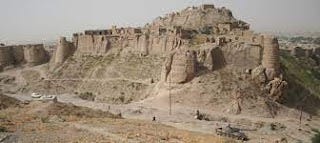This is the age of instantaneous communication. We are all just one click away from each another. The benefits are obvious. The downsides, perhaps less so. Texts come and go so quickly, they can leave us lonelier than before they arrived.
But there was a previous time, before cellphones, texts, chats and X/Zoom meetings when contacting each other took much more time and effort.
Of course, it is so long ago now that few of us may be able to even recall it. But back then, we wrote letters to each other. Letters take time. Letters take care. We had to compose our thoughts and the use of language truly mattered.
I do not like to admit my age, but I date from the time when words still mattered. Like truth. Nowadays, when I exchange messages, they seem to come and go like the wind.
That’s nice, in its own way, but I miss the permanence of letters.
LATEST LINKS:
China suspends cooperation with US on range of issues, sanctions Pelosi over Taiwan trip (CNN)
Chinese Missiles Strike Seas Off Taiwan, and Some Land Near Japan (NYT)
The last time there was a Taiwan crisis, China’s low-tech military was badly outmatched by U.S. forces. Not now. (NBC)
China's firing of missiles during military drills around Taiwan was an unjustified escalation, U.S. Secretary of State Antony Blinken said today, as Beijing said it would sanction House of Representatives Speaker Nancy Pelosi for visiting the island. Reuters)
Diplomatic crisis over Pelosi’s Taiwan trip widens as White House summons China’s ambassador (WP)
China Boasts of Ability to Blockade Taiwan as Military Exercises Continue (WSJ)
Democrats, Sinema reach deal on Inflation Reduction Act, after key changes to tax policies (WP)
Key U.S. Senator Sinema agrees to $430 billion drug, energy bill (Reuters)
Democrats on Thursday secured Sen. Kyrsten Sinema's (D-Ariz.) backing to their climate and health care bill in exchange for making several changes to the legislation. The Senate will hold a procedural vote on the bill Saturday, Senate Majority Leader Chuck Schumer announced. The potential climate and economic benefits of the legislation are also becoming clearer. Three separate studies showed the bill could slash U.S. carbon emissions by 40 percent or more below 2005 levels by the end of the decade. [HuffPost]
What Biden's low approval ratings and high-profile wins could mean for the midterms (NPR)
Kansas Result Suggests 4 Out of 5 States Would Back Abortion Rights in Similar Vote (NYT)
Dick Cheney calls Trump a 'coward' in new TV ad supporting daughter's campaign (CNN)
Donald Trump cost his party the House, the White House and the Senate in a single presidential term, and now his coup attempt on his way out the door has ensnared the Republican National Committee in state and federal criminal investigations. At least half a dozen RNC members could face prison time for their roles in the "fake elector" scheme that the former president pushed to illegally remain in office. [HuffPost]
DeSantis suspends state attorney who vowed not to enforce Florida's new abortion law — Democrats call move "extreme and unhinged." (Politico)
Jury awards $45.2 million in punitive damages in Alex Jones Sandy Hook trial (Reuters)
Republicans at CPAC embrace a defiant Viktor Orban amid outrage over ‘mixed-race’ remarks. (NYT)
Meta quieter on election misinformation as midterms loom (AP)
Amid ‘mixed race’ speech furor, Orban echoes Trump in Dallas (WP)
Bank of England warns the UK will fall into recession this year (BBC)
US employers add 528,000 jobs; unemployment falls to 3.5% (AP)
Russia and the United States said they were ready to discuss a prisoner swap after a Russian court sentenced basketball star Brittney Griner to nine years in prison for a drugs offense. (Reuters)
Amnesty criticizes Ukraine's fighting tactics for endangering civilians (NHK)
Mines, Fires, Rockets: The Ravages of War Bedevil Ukraine’s Farmers (NYT)
VIDEO: South Korea Launches First Lunar Spacecraft (Reuters)
Gaza: Palestinian commander killed as Israel strikes after militant threats (BBC)
Al-Qaida chief’s killing comes as group gains ground in African conflict zones (Guardian)
Inside the Air Force’s use of AR to train U.S. pilots to fight China, Russia (WP)
Biden administration declares the monkeypox outbreak a public health emergency (CNN)
Guns used in crimes in California are increasingly coming from Arizona and Nevada. (The Wall Street Journal)
Boudin bows out (Politico)
Just how big can a super-Earth get while staying 'habitable'? (Space.com)
Modern Men Are Still Figuring Out Fatherhood (Atlantic)
How Universal Are Our Emotions? (New Yorker)
Straight Men, The Vibrator Is Your Teammate, Not The Competition (HuffPost)
Fauci warns of ‘trouble’ for those with BA.5 variant if not up to date on vaccines (WP)
Slumping Aaron Judge Fails To Hit Home Run For Entire At-Bat (The Onion)
Today’s Lyrics:
“This Little Bird”
Sung by Marianne Faithful
Written by John Loudermilk
There's a little bird that somebody sends
Down to the earth to live on the wind.
Borne on the wind and he sleeps on the wind
This little bird that somebody sends.
He's light and fragile and feathered sky blue,
So thin and graceful the sun shines through.
This little bird who lives on the wind,
This little bird that somebody sends.
He flies so high up in the sky
Out of reach of human eye.
And the only time that he touches the ground
Is when that little bird
Is when that little bird
Is when that little bird dies.
